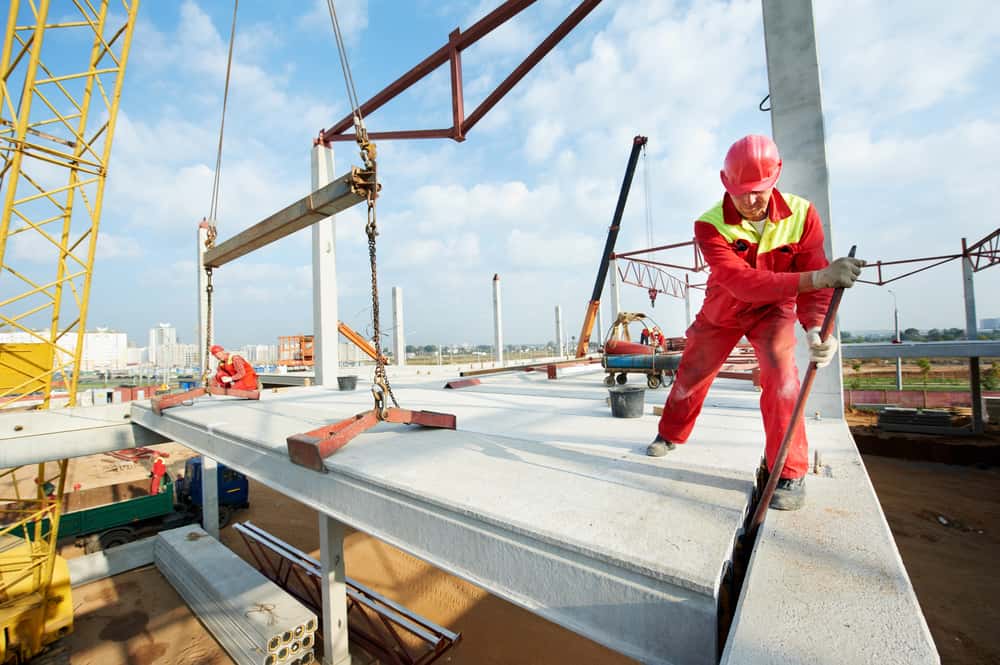Durability Matters: Choosing Concrete Over Other Materials
What Your Next Project Stands To Benefit From Using Concrete
When considering building materials, you always want to compare cost, sustainability, safety and durability, among other things. Building materials like steel may be strong and durable, but it comes at a higher cost and may not be necessary for every project. On the other hand, wood is cheap to use, but causes you to compromise on durability and safety.
Concrete, however, stands out against other building materials. It’s affordable, energy efficient, safe and durable—and a material that can work for almost any project.
We know the power of concrete, which is why we want to share the benefits of concrete as a building material. That way, when it’s time for your next project, you remember to compare—and choose—concrete over other materials.
Below, we discuss the advantages concrete has over other materials, specifically wood. We hope this blog gives you the information you need to make concrete your go-to building material in the future.
10 Reasons To Choose Concrete Over Another Building Material
1. Low Maintenance
In comparison to other materials, concrete is extremely low maintenance. In fact, concrete may never require maintenance at all! Materials like steel or wood, however, must be maintained over time.
For example, wood will need to be retreated and repainted over time, and potentially even replaced. The same goes for steel! Concrete, on the other hand, won’t ever require this type of maintenance. This low level of maintenance not only makes concrete a more simple choice, but also a less expensive one.
While concrete may be more expensive than wood initially, the cost you will save over time makes it a worthwhile investment.
2. Resistant To Wind and Water
Concrete’s resistance to wind and water differentiates it from other materials like wood, too. Wood is easily damaged by wind and water, making it less ideal and safe for construction. For example, a large storm may cause wood to snap or break, and the excess water may result in mold damage.
Either way, both potential outcomes are expensive and time-consuming fixes. Unlike wood, concrete stands significantly less of a chance of being damaged by wind and water. This level of resistance allows concrete to stand out against other, weaker materials.
3. Fire-Proof
Due to its ability to absorb heat, concrete is actually fire-proof. This capability alone demonstrates the power of concrete over other building materials, especially wood.
In fact, fires kill more Americans than any other natural disaster combined. In 2017 alone, fires cost the US a total of $328.5 billion. Knowing the threat that fires place on our homes, projects and lives, why would you not choose concrete?
Materials like wood are extremely vulnerable to fire damage. Wood burns quickly, making it difficult to salvage in the event of a fire. This isn’t a concern for concrete though. Concrete walls and floors will not only stand strong during the event of a fire, but it stands a better chance of protecting what’s inside unlike wood.
4. Energy Efficient
Concrete’s heat absorption isn’t only beneficial for fires! Its ability to retain heat makes it energy efficient as well.
How so? Well, concrete’s heat retention requires less work on the buildings HVAC system, which not only cuts expenses, but also increases the building’s energy efficiency.
In addition, the amount of energy required to create concrete differs greatly than that required for a material like steel. On average, steel requires roughly three times as much energy to produce than concrete. In terms of energy efficiency, this is a big deal! As more projects decide to go green and enforce sustainability efforts, energy efficient materials like concrete become even more important.
5. Extremely Durable
Concrete is a material that is built to last. In general, the lifespan of concrete is two to three times longer than other building materials. This level of durability is simply unparalleled!
Other materials like wood can’t compare when it comes to durability. Wood will need to be replaced over time. Concrete, however, stays strong!
No matter the project, you need a building material that will last for years to come, which is why concrete remains the obvious choice above other materials.
6. Doesn’t Rust or Rot
Building off of its extreme durability, concrete also will not rust or rot. Wood and metal building materials will, though.
Decaying, rotting or rusting materials can be expensive to replace or repair. This is an expense you won’t have to worry about with concrete! While concrete has many benefits over other building materials, its durability and inability to rust or rot make it a prime material choice for any project.
7. Can Be Placed To Fit Any Space
One of the many beauties of concrete is that it can be placed in any space, shape or design. If the space you need coverage for is large, no problem. Small, no problem. In a unique shape, you guessed it, no problem!
While wood can sometimes be cut to fit small or unique spaces, placing concrete is a more reliable, consistent and durable option. Additionally, concrete can even be stamped to resemble the look of other materials such as brick, stone and wood. Concrete designs are essentially limitless, so you can achieve the look you want without having to compromise on weaker, less reliable materials.
8. Minimal Waste
Concrete is a material with minimal waste as well. It can be produced in exact amounts, so you won’t have to worry about wasting an excess amount of concrete.
Additionally, when concrete has served its purpose, it can be crushed, recycled and reused for other projects. This reusability isn’t always possible for other building materials!
9. Reflectivity
Since concrete is light in color, it’s able to reflect solar radiation, rather than absorb it like darker materials such as asphalt.
This also adds to its levels of energy efficiency, since the reflectivity will help reduce the need for the building’s AC system to work overtime, especially in the warmer months like spring and summer.
10. Cuts Down on Noise Pollution
Concrete is known to reduce noise—and even soundproof walls and floors—unlike other materials. The thickness of concrete walls and floors won’t allow sound to travel back and forth.
When Choosing Concrete For Your Next Project, Don’t Forget To Partner With The Right Supplier
Now that you know how concrete stands against other building materials, it almost seems like a no brainer to choose concrete for your next project!
However, don’t forget to partner with the right concrete supplier.
Here at Concrete Supply Co., our mission is to be the premier supplier of quality ready-mix concrete to benefit our employees, customers, shareholders and our community.
When you partner with us, we promise to value the industry, teamwork, profitability and most importantly, you! We know choosing the right supplier isn’t always easy, which is why we want to share the same passion and outlook for your project as you do.
If you’re ready to choose concrete for your next project, contact our team to learn how we can benefit you! We’d be happy to answer any questions you may have about the limitless possibilities of concrete.
Speaking of suppliers, are you having trouble finding reliable partners? If so, download our free guide, Guide To Pre-Qualifying Suppliers, below!


